- Home
- Roger Zelazny
Creatures of Light and Darkness Page 10
Creatures of Light and Darkness Read online
Page 10
Madrak fetches forth his wine bulb, swigs a mouthful to show it unsullied, casts about the room.
“A fit container, sir,” he says, and raises up the down-turned goblet which lies upon the table. Wiping it with a clean cloth, he fills it and proffers it to the god.
“Thank you, warrior-priest. I accept it in the spirit in which it was offered. What battle was it which so upset you that you forgot your manners?”
“That, Brown-eyed Horus, was the battle of Blis, between the Steel General and the one who is called Wakim the Wanderer.”
“The Steel General? Impossible! He has been dead for centuries. I slew him myself!”
“Many have slain him. None have vanquished him.”
“That pile of junk upon the table? Could that truly be the Prince of Rebels, who one time faced me like a god?”
“Before your memory, Horus, was he mighty,” says Vramin, “and when men have forgotten Horus, still will there be a Steel General. It matters not which side he fights upon. Win or lose, he is the spirit of rebellion, which can never die.”
“I like not this talk,” says Horus. “Surely, if one were to number all his parts and destroy them, one by one, and scatter them across the entire cosmos, then would he cease to exist.”
“This thing has been done. And over the centuries have his followers collected him and assembled the engine again. This man, this Wakim, whose like I have never seen before,” says Vramin, “voiced a similar sentiment before the fugue battle which racked a world. The only thing which keeps them from laying waste—excuse the poor choice of words—to this world Marachek, is that I will not permit them to awaken again from a state of temporal shock.”
“Wakim? This is the deadly Wakim?—Yes. I can believe it as I look upon him in repose. Have you any idea who he is really? Such champions do not spring full-grown from the void.”
“I know nothing of him, save that he is a mighty wrestler and a master of the fugue, come to Blis in her last days before the dark tides swept over her—perhaps to hasten their coming.”
“That is all you know of him?”
“That is all I know.”
“And you, mighty Madrak?”
“…The sum of my knowledge, also.”
“Suppose we were to awaken him and question him?”
Vramin raises his cane.
“Touch him and I shall dispute your passage. He is too fearsome an individual, and we came here to rest.”
Horus lays a hand upon Wakim’s shoulder and shakes him slightly. Wakim moans.
“Know that the wand of life is also a lance of death!” cries Vramin, and with a lunging motion spears the toad, which sits immediately beside Horus’ left hand.
Before Horus can turn upon him, there is a quick outward rush of air as the toad explodes into a towering form in the center of the table.
His long golden hair stands high and his thin lips draw back into a smile, as his green eyes fall upon the tableau at his feet.
The Prince Who Had Been A Toad touches a red spot on his shoulder, says to Vramin, “Did you not know that it has been written, ‘Be kind to bird and beast’?”
“Kipling,” says Vramin, smiling. “Also, the Koran.”
“Shape-shifting miscreant,” says Horus, “are you the one I seek—called by many the Prince?”
“I confess to this title. Know that you have disturbed my meditations.”
“Prepare to meet your doom,” says Horus, drawing an arrow— his only weapon—from his belt, and breaking off its head.
“Do you think that I am unaware of your power, brother?” says the Prince, as Horus raises the arrowhead between thumb and forefinger. “Do you think, brother, that I do not know that you can add the power of your mind to the mass or velocity of any object, increasing it a thousandfold?”
There is a blur in the vicinity of Horus’ hand and a crashing sound across the room, as the Prince stands suddenly two feet to the left of where he had been standing and the arrowhead pierces a six-inch wall of metal and continues on into what is now a dusty and windy morning as the Prince continues to speak: “…And do you now know, brother, that I could as easily have removed myself an inconceivable distance across space with the same effort that it took me to avoid your shot? Yea, out of the Middle Worlds themselves?”
“Call me not brother,” says Horus, raising the shaft of the arrow.
“But thou art my brother,” says the Prince. “At least, we’d the same mother.”
Horus drops the shaft.
“I believe you not!”
“And from what strain do you think you derived your godlike powers? Osiris? Cosmetic surgery might have given him a chicken’s head, and his own dubious strain an aptitude for mathematics—but you and I, shape-shifters both—are sons of Isis, Witch of the Loggia.”
“Cursed be my mother’s name!”
Suddenly, the Prince stands before him on the floor of the chamber and slaps him with the back of his hand.
“I could have slain you a dozen times over, had I chosen,” says the Prince, “as you stood there. But I refrained, for you are my brother. I could slay you now, but I will not. For you are my brother. I bear no arms, for I need none. I bear no malice, or the burden of my life would be staggering. But do not speak ill of our mother, for her ways are her own. I neither praise nor do I blame. I know that you have come here to kill me. If you wish to enjoy an opportunity to do so, you will hold your tongue in this one respect, brother.”
“Then let us speak no more of her.”
“Very well. You know who my father was, so you know that I am not unversed in the martial arts. I will give you a chance to slay me in hand-to-hand combat, if you will do a thing for me first. Otherwise, I will remove myself and find someone else to assist me, and you may spend the rest of your days seeking me.”
“Then this must be what the oracle meant,” says Horus, “and it bodes ill for me. Yet I cannot pass up the chance to fulfill my mission, before Anubis' emissary—this Wakim—achieves it. For I know not his powers, which might exceed your own. I will keep my peace, run your errand, and kill you.”
“This man is the assassin from the House of the Dead?” says the Prince, looking upon Wakim.
“Yes.”
“Were you aware of this, my Angel of the Seventh Station?” asks the Prince.
“No,” says Vramin, bowing slightly.
“Nor I, Lord”—Madrak.
“Arouse him—and the General.”
“Our bargain is off,” says Horus, “if this be done.”
“Awaken them both,” says the Prince, folding his arms.
Vramin raises his cane, and the green tongues come forth and descend upon the prostrate forms.
Outside, the winds grow more noisy. Horus shifts his attention from one to the other of those present, then speaks: “Your back is to me, brother. Turn around that I may face you as I slay you. As I said, our bargain is off.”
The Prince turns.
“I need these men, also.”
Horus shakes his head and raises his arm.
Then, “A veritable family reunion,” says the voice which fills the chamber, “we three brothers having come together at last.”
Horus draws back his hand as from an asp, for the shadow of a dark horse lies between himself and the Prince. He covers his eyes with one hand and lowers his head. “I had forgotten,” he says, “that by what I learned today, I am also kin to thee.”
“Take it not too badly,” says the voice, “for I have known it for ages and learned to live with it.”
And Wakim and the Steel General awaken to a sound of laughter that is like the singing wind.
Brotz, Purtz, and Dulp
Pass the frawlpin, please.”
“I beg your pardon?”
“The frawlpin! The frawlpin!”
“I don’t have it.”
“I’ve got it.”
“Oh. Why didn’t you say so?”
“Why didn’t you ask me?”
“Why do you keep refribbing that job, anyhow? It’s ready.”
“Just to pass away the time.”
“Do you seriously think he’ll ever send for it?”
“Of course not. But that’s no reason for turning out an inferior product.”
“Well, I think he’ll send for it!”
“Who asked you?”
“I’m volunteering an opinion.”
“Whatever would he want it for? A tool no one can use!”
“If he ordered it he wants it. He’s the only one of his kind ever comes here to do business, and he’s a gentleman, I say. One of these days, he or his’ll pop in to pick it up.”
“Ha!”
” ‘Ha!’ yourself. Just wait.”
“We haven’t much choice now.”
“Here’s your frawlpin back.”
“Go sit on it.”
Cerberus Yawns
The dog tosses the glove from head to head until, yawning, he misses and it falls to the ground.
He fetches it from among the bones that lie at his feet, wags his tails, curls up, and closes four eyes.
His other eyes burn like coals within the massive dark that is beind the Wrong Door.
Above him, in the fallout shelter, the Minotaur bellows…
God is Love
Fifty thousand devotees of the Old Shoes, led by six castrati-priests, chant a magnificent litany within the stadium.
A thousand drug-maddened warriors, glory glory glory-saying, sway with their spears before the altar of the Unwearable.
It begins to rain, gently, but few notice.
Never to Be
Osiris, holding a skull and depressing a stud on its side, addresses it, saying: “Once mortal, you have come to dwell in the House of Life forever. Once beauty, blooming fair atop a spinal column, you withered. Once truth, you have come to this.”
“And who,” answers the skull, “is perpetrator of this thing? It is the Lord of the House of Life that will not let me know rest.”
And Osiris makes answer, saying: “Know, too, that I use thee for a paperweight.”
“If ever thou didst love me, then smash me and let me die! Do not continue to nourish a fragment of her who once loved thee.”
“Ah, but dear my lady, one day might I re-embody thee, to feel thy caresses again.”
“The thought of this thing repels me.”
“And I, also. But one day it might amuse me.”
“Dost thou torment all who displease thee?”
“No, no, shell of death, think never that! True, the Angel of the Nineteenth House attempted to slay me, and his nervous system lives, threaded amidst the fibers of this carpet I stand upon; and true, others of my enemies exist in elementary forms at various points within my House—such as fireplaces, ice lockers and ash trays. But think not that I am vindictive. No, never. As Lord of Life, I feel an obligation to repay all things which have threatened life.”
“I did not threaten thee, my Lord.”
“You threatened my peace of mind.”
“Because I resembled thy wife, the Lady Isis?”
“Silence!”
“Aye! I resembled the Queen of Harlots, thy bride. For this reason didst thou desire me and desire my undoing—”
The skulls words are then cut short, however, as Osiris has hurled it against the wall.
As it falls to pieces and chemicals and microminiature circuitry are spread upon the carpet, Osiris curses and falls upon a row of switches at his desk, the depression of which gives rise to a multitude of voices, one of which, above the others, cries out, through the speaker set high upon the wall:
“Oh clever skull, to so have tricked the fink god!”
Consulting the panel and seeing that it is the carpet which has spoken, Osiris moves to the center of the room and begins jumping up and down.
There grows up a field of wailing.
The Power of the Dog
Into the places of darkness and disrepute, upon the world called Waldik, enter the two champions Madrak and Typhon. Sent by Thoth Hermes Trismegistus to steal a glove of singular potency, they are come to do battle with the guardian of that glove. Now, the world Waldik, long ago ravaged, hosts a horde of beings who dwell beneath the surface in caverns and chambers far removed from the courts of day and night. Darkness, dampness, mutation, fratricide, incest and rape are the words most often used by the few who offer commentary upon the world Waldik. Transported there by a piece of spatial hijackery known only to the Prince, the champions will succeed or remain. They go now through burrows, having been told to follow the bellowing.
“Think you, dark horse shadow,” asks the warrior-priest, “that thy brother can retrieve us at the proper moment?”
“Yes,” replies the shadow that moves at his side. “Though if he cannot, I care not. I can remove myself in my own way whenever I wish.”
“Yes, but I cannot.”
“Then worry it, fat Dad. I care not. You volunteered to accompany me. I did not request this thing.”
“Then into the hands of Whatever May Be that is greater than life or death, I resign myself—if this act will be of any assistance in preserving my life. If it will not, I do not. If my saying this thing at all be presumptuous, and therefore not well received by Whatever may or may not care to listen, then I withdraw the statement and ask forgiveness, if this thing be desired. If not, I do not. On the other hand—”
“Amen! And silence, please!” rumbles Typhon. “I have heard a thing like a bellow—to our left.”
Sliding invisibly along the dark wall, Typhon rounds the bend and moves ahead. Madrak squints through infrared glasses and splays his beam like a blessing upon everything encountered.
“These caverns be deep and vasty,” he whispers.
There is no reply.
Suddenly he comes to a door which may be the right door.
Opening it, he meets the minotaur.
He raises his staff, but the thing vanishes in a twinkling.
“Where…?” he inquires.
“Hiding,” says Typhon, suddenly near, “somewhere within the many twistings and turnings of its lair.”
“Why is this?”
“It would seem that its kind are hunted by creatures much like yourself, both for food and man/bull-headed trophies. It fears direct battle, therefore, and retreats—for man uses weapons upon cattle. Let us enter the labyrinth and hope not to see it again. The entranceway we seek, to the lower chambers, lies somewhere within.”
For perhaps half a day they wander, unsuccessfully seeking the Wrong Door. Three doors do they come upon, but only bones lie behind.
“I wonder how the others fare?” asks the warrior-priest.
“Better, or worse—or perhaps the same,” replies the other, and laughs.
Madrak does not laugh.
Coming into a circle of bones. Madrak sees the charging beast barely in time. He raises his staff and begins the battle.
He strikes it between the horns and upon the side. He jabs, slashes at, pushes, strikes the creature. He locks with it and wrestles, hand to hand.
Hurting one another, they strive, until finally Madrak is raised from the floor and hurled across the chamber, to land upon his left shoulder on a pile of bones. As he struggles to raise himself, he is submerged by an ear-breaking bellow. Head lowered, the minotaur charges. Madrak finds his feet and begins to rise.
But a dark horse shadow falls upon the creature, and it is gone—completely and forever.
He bows his head and chants the Possibly Proper Death Litany.
“Lovely,” snorts his companion, when he comes to the final ‘Amen.’ “Now, fat Dad, I think I have found us the Wrong Door. I might enter without opening it, but you may not. How would you have it?”
“Bide a moment,” says Madrak, standing. “A bit of narcotic and I’ll be good as new and stronger than before. Then we shall enter together.”
“Very well.
I’ll wait.”
Madrak injects himself and after a time is like unto a god.
“Now show me the door and let us go in.”
“This way.”
And there is the door, big and forbidding and colorless, within the infra-light.
“Open it,” says Typhon, and Madrak does.
In the firelight it plays, worrying the gauntlet. Perhaps the size of two and a half elephants, it sports with its toy there atop a heap of bones. One of its heads sniffs at the sudden draft of air from beyond the Wrong Door, two of its heads snarl and the third drops the glove.
“Do you understand my voice?” asks Typhon, but there is no answering intelligence behind its six red eyes. Its tails twitch and it stands, all scaley and impervious, within the flicker and glow.
“Nice doggie,” comments Madrak, and it wags its tails, opens its mouths and lunges toward him.
“Kill it!” cries Madrak.
“That is impossible,” answers Typhon. “In time, that is.”
A Pair of Soles Upon The Altar
Coming at length to the world Interludici, and entering through the sudden green gateway the poet hurls upon the blackness, Wakim and Vramin enter the mad world of many rains and religions. Lightfooted, they stand upon the moist turf outside a city of terrible black walls.
“We shall enter now,” says the poet, stroking his sky-green beard. “We shall enter through that small door off to the left, which I shall cause to open before us. Then will we hypnotize or subdue any guards who may be present and make our way into the heart of the city, where the great temple stands.”
“To steal boots for the Prince,” says Wakim. “This is a strange employment for one such as myself. Were it not for the fact that he had promised to give my name back to me—my real name—before I slay him, I would not have agreed to do this thing for him.”
“I realize that, Lord Randall, my son,” says Vramin, “but tell me, what do you intend to do with Horus, who would also slay him—and who works for him now only to gain this same opportunity?”
“Slay Horus first, if need be.”

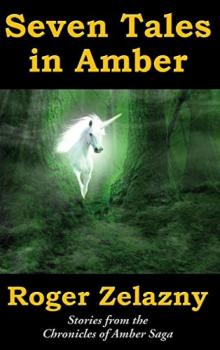 Seven Tales in Amber
Seven Tales in Amber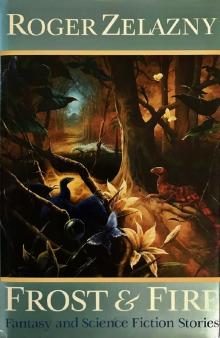 Frost and Fire
Frost and Fire Doorways in the Sand
Doorways in the Sand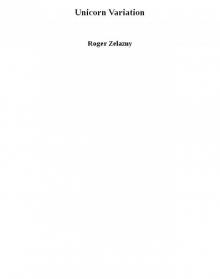 Unicorn Variation
Unicorn Variation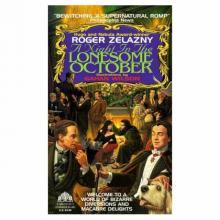 A Night in the Lonesome October
A Night in the Lonesome October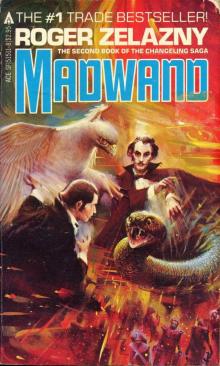 Madwand
Madwand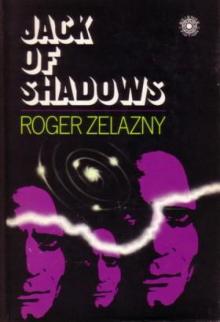 Jack Of Shadows
Jack Of Shadows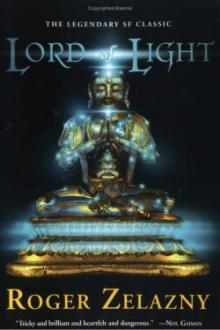 Lord of Light
Lord of Light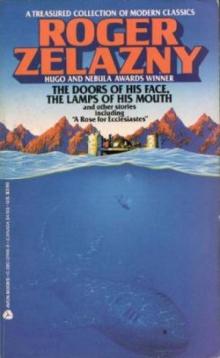 The Doors of His Face, The Lamps of His Mouth and Other Stories
The Doors of His Face, The Lamps of His Mouth and Other Stories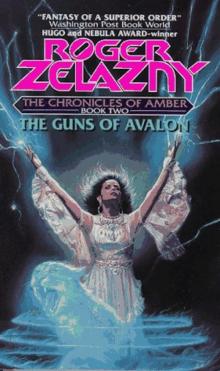 Guns Of Avalon tcoa-2
Guns Of Avalon tcoa-2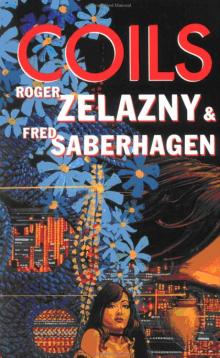 Coils
Coils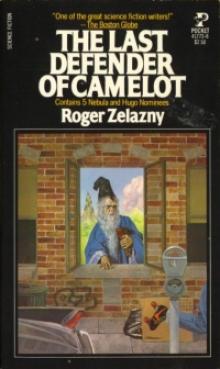 The Last Defender Of Camelot
The Last Defender Of Camelot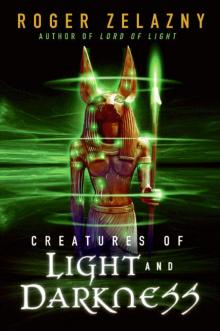 Creatures of Light and Darkness
Creatures of Light and Darkness This Immortal
This Immortal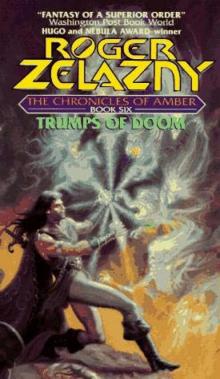 Trumps of doom tcoa-6
Trumps of doom tcoa-6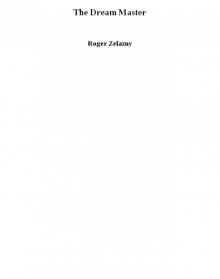 The Dream Master
The Dream Master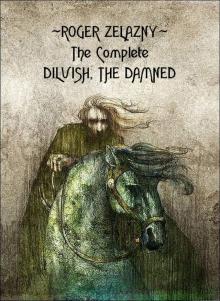 The Complete Dilvish, The Damned
The Complete Dilvish, The Damned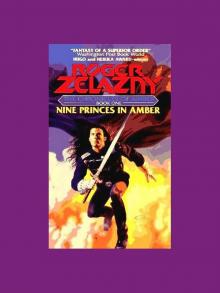 Nine Princes in Amber
Nine Princes in Amber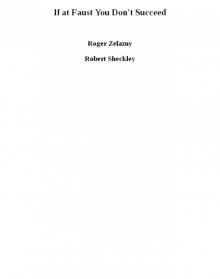 If at Faust You Don't Succeed
If at Faust You Don't Succeed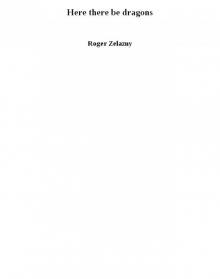 Here there be dragons
Here there be dragons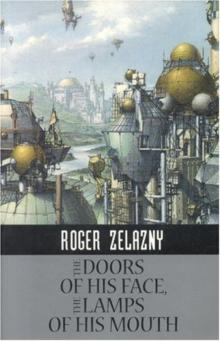 The Doors Of His Face, The Lamps Of His Mouth
The Doors Of His Face, The Lamps Of His Mouth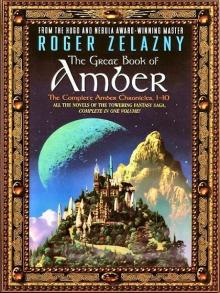 The Great Book of Amber - Chronicles 1-10
The Great Book of Amber - Chronicles 1-10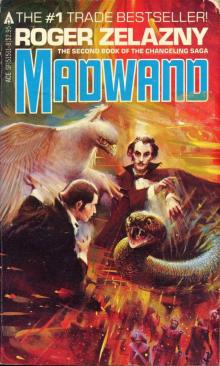 Madwand (Illustrated)
Madwand (Illustrated)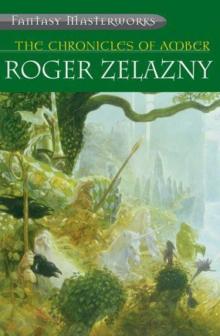 The Chronicles of Amber
The Chronicles of Amber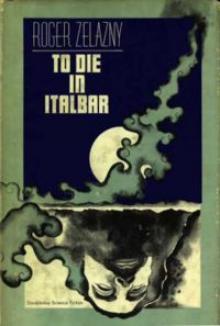 To Die In Italbar
To Die In Italbar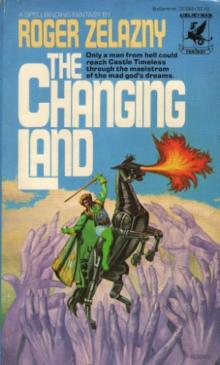 The Changing Land
The Changing Land The Furies
The Furies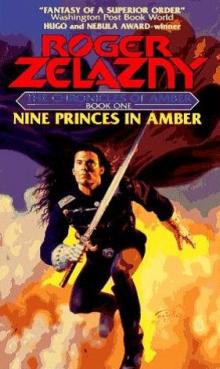 Nine Princes In Amber tcoa-1
Nine Princes In Amber tcoa-1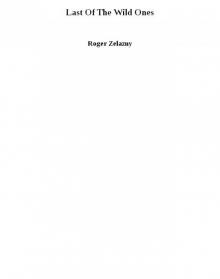 Last Of The Wild Ones
Last Of The Wild Ones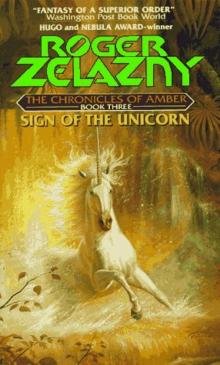 Sign of the Unicorn tcoa-3
Sign of the Unicorn tcoa-3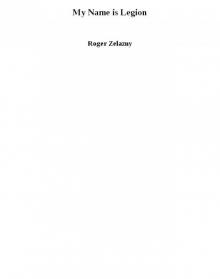 My Name is Legion
My Name is Legion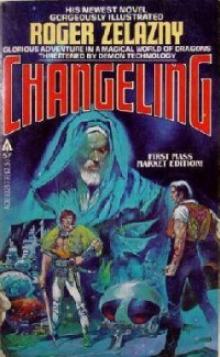 Wizard World 1: Changeling
Wizard World 1: Changeling Changeling
Changeling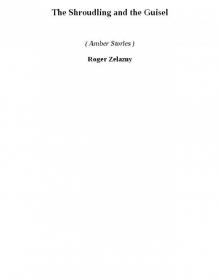 The Shroudling and the Guisel (amber stories)
The Shroudling and the Guisel (amber stories)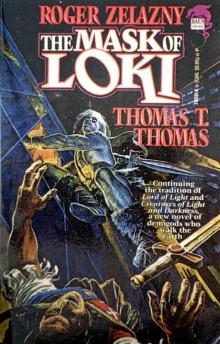 The Mask of Loki
The Mask of Loki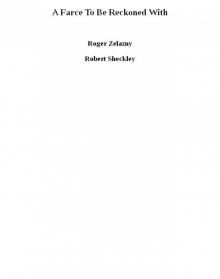 A Farce To Be Reckoned With
A Farce To Be Reckoned With Roadmarks
Roadmarks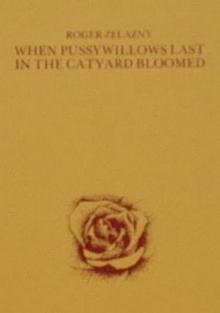 When Pussywillows Last in the Catyard Bloomed (rtf)
When Pussywillows Last in the Catyard Bloomed (rtf)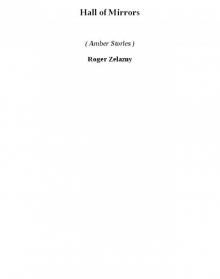 Hall of Mirrors (amber stories)
Hall of Mirrors (amber stories)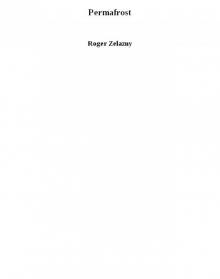 Permafrost
Permafrost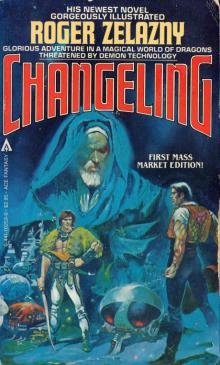 Changeling (Illustrated)
Changeling (Illustrated)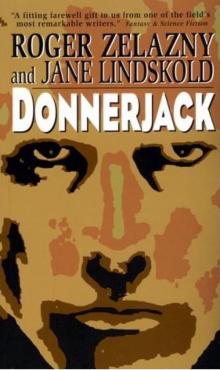 Donnerjack
Donnerjack Shadows & Reflections: A Roger Zelazny Tribute Anthology
Shadows & Reflections: A Roger Zelazny Tribute Anthology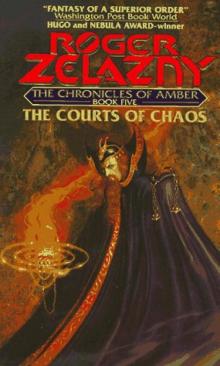 The Courts Of Chaos tcoa-5
The Courts Of Chaos tcoa-5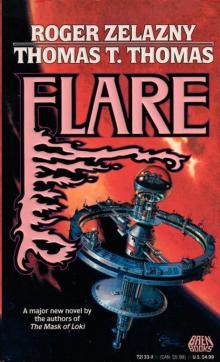 Flare
Flare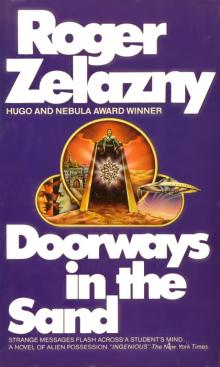 Doorsways in the Sand
Doorsways in the Sand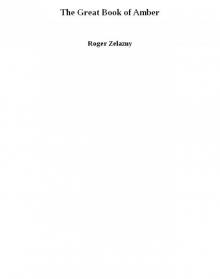 The Great Book of Amber
The Great Book of Amber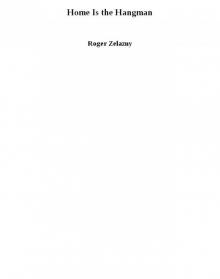 Home Is the Hangman
Home Is the Hangman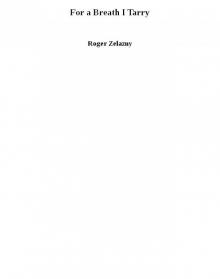 For a Breath I Tarry
For a Breath I Tarry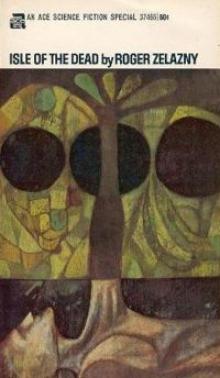 Isle Of The Dead
Isle Of The Dead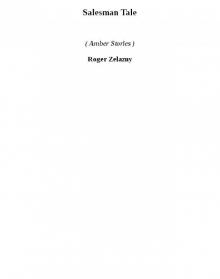 Salesman Tale (amber stories)
Salesman Tale (amber stories)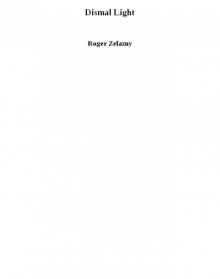 Dismal Light
Dismal Light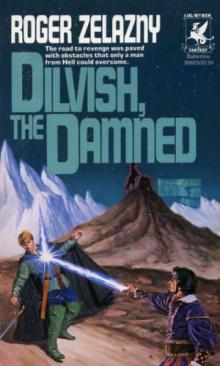 Dilvish, The Damned
Dilvish, The Damned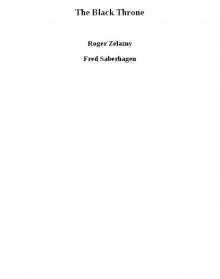 The Black Throne
The Black Throne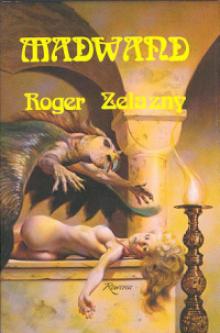 Wizard World 2: Madwand
Wizard World 2: Madwand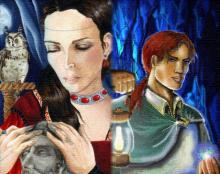 The Salesman's Tale
The Salesman's Tale